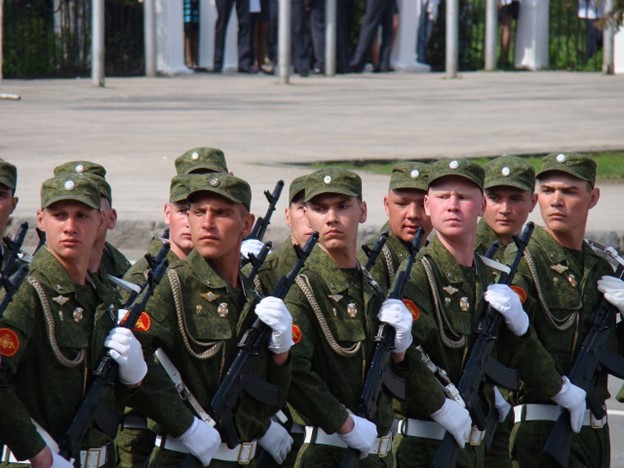Hot spots around the world are so numerous at the close of 2024 that the media is unable to provide adequate coverage. One evolving area is located in a nation-state that once sought to move close to the West and NATO. In a November 28 message, Georgia’s Prime Minister, Irakli Kobakhidze s announced the country is suspending integration talks with the European Union (EU) and imposing additional authoritarian measures. The government clampdown has sparked a “pre-revolutionary” environment in the country, according to Beja Chedia of the European Daily Monitor. In response to those demonstrations the Georgian government further intensified repression against the opposition who are protesting across the country. Palitravideo.ge says that David Zankaliani, the Georgian Ambassador to the United States, and previously the country’s Foreign Minister from the Georgian Dream Party, along with several other Georgian officials resigned last week.
Chedia adds that “Georgian Dream has been taking steps to suppress any potential uprising and demonstrate its strong relations with the United States and the incoming Donald Trump administration to appease the Georgian people by means of disinformation and propaganda.” In Georgia, the population believes that it is up to the United States and other western countries now to respond to Kobakhidze or risk losing Georgia as an ally. Others argue that the ruling elite may eventually strengthen ties to Russia to help them retain power.
Protests and strikes have spread across Georgia since the end of November. The public is accusing the government of election fraud, seeking to re-establish a Russian-style authoritarian rule, and cracking down on dissenting voices. Over the last few weeks, the government has arrested hundreds of people, with many beaten, maimed, and imprisoned. The numbers include women and young teenagers, journalists, ordinary citizens, opposition political leaders and civil activists. The list is growing longer.
Earlier this week, Georgia’s public defender, Levan Ioseliani, warned that if the unrest does not stop, the whole country will descend into civil war. On December 8, TV Pirveli reported that an unidentified masked group attacked journalists from an opposition TV channel live on air. While the ruling Georgian Dream party denied involvement in the incident, Chedia says that local media reports suggest that government agencies were behind the attacks. “As Georgians continue to protest Georgian Dream’s path away from EU integration and toward authoritarianism, Georgia’s Western turn becomes increasingly at risk,” he adds.
The government has introduced new legislative restrictions similar to repressive tactics seen in Russia as it views its current measures ineffective in addressing the mass protests. On December 8, through official channels, the prime minister announced that by January 1, 2025, there would be a new law prohibiting face coverings for those participating in public demonstrations. It is similar to a law approved by the pro-Russian regime in Ukraine in 2014 during the Euromaidan demonstrations. It went into effect as protests broke out when then-President Viktor Yanukovych decided to not sign the European Union–Ukraine Association Agreement. Protesters in Georgia are growing more concerned that police will continue to use tear gas and be targeted by special services for further retribution.
Georgian Dream and its supporters are making claims that in the coming week, from December 16-20, Western nations are planning to support a revolution inside the country. In response the government is taking steps to halt the opposition, claiming that Georgia does not want a Velvet Revolution like that in Ukraine in 2014. Chedia points out that Mamuka Mdinaradze, the leader of the parliamentary majority, claims Georgian Dream was able to foil these supposed plans by revoking the licenses of schools of higher education who students and teachers went on strike after November 28. Leaders of the ruling elite, including the mayor of Tbilisi, have begun openly threatening state and local employees who signed a petition condemning the government’s latest actions. They are proposing a “reorganization” of government workers that could mean massive job losses for those opposing the repression.
“The scale and content of misinformation in pro-Georgian Dream media have reached an incredible level, even going as far as promoting US politicians loyal to the incoming Trump administration,” says Chedia. At the end of November, the Biden Administration announced it was ending its strategic partnership with Georgia, which began in 2009. Kobakhidze addressed the decision, saying that Georgia’s strategic partnership with the United States had no practical significance because “we did not have direct flights, a visa-free regime, or a free trade regime.” President-elect Trump met with the countries pro-Western president, Salome Zourabichvili in Paris on December 7. The meeting was welcomed by the Georgian people as a positive sign that Washington understands the need for a strong bilateral relationship.
The incoming Trump administration needs to act decisively and quickly to avoid Georgia’s tilt toward authoritarian rule. If Washington falters in the coming months, some local observers believe that the Georgian Dream Party will move closer to Russia to retain power. Such a move could open the door for further Russian moves into Central Asia, further destabilizing the region.
Daria Novak served in the U.S. State Dept.
Photo: Pixabay
